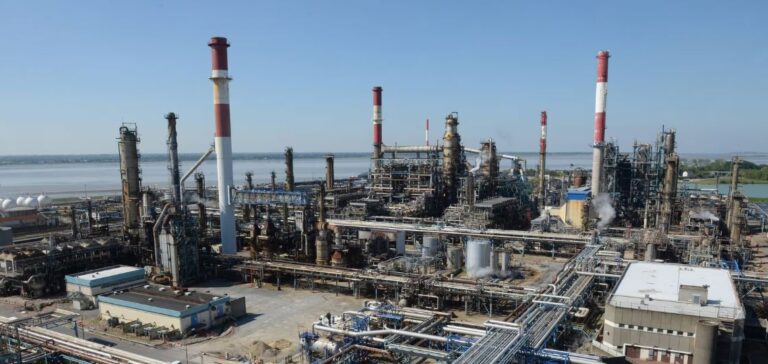French refineries are facing incidents and falling demand, impacting employees in a fast-changing sector. The Donges refinery, managed by TotalEnergies, was shut down in February due to corrosion and leaks. Eric Sellini, CGT coordinator at TotalEnergies, criticizes the lack of preventive maintenance. Management, represented by Jean-Marc Durand, refutes these accusations, assuring us that safety and maintenance are top priorities. A recovery is expected in early April, marking an effort to overcome these challenges. In addition, a fire broke out at the Esso-ExxonMobil refinery in Port-Jérôme on March 11, causing five minor injuries. According to the CGT, this incident is not directly linked to a lack of maintenance. However, CGT delegate Germinal Lancelin points to industrial disinvestment. These events highlight the challenges of safety and investment in the sector.
The challenge of competitiveness
The competitiveness of French refineries is being challenged by the high cost of energy, particularly gas and electricity. Olivier Gantois of Ufip points out that natural gas prices are significantly higher than before the pandemic. Jean-Marc Durand mentions that TotalEnergies strives to reduce its energy consumption in order to remain competitive. This difficult context is exacerbated by falling demand for petroleum products.
Investments and reconversions
TotalEnergies plans to invest 350 million euros in a new plant at Donges to meet European specifications. This plan contrasts with the general trend to convert refineries into bio-refineries, such as the projects at La Mède and Grandpuits. These conversions, however, led to a reduction in headcount, from around 400 to 250 employees per site. A potential conversion project is also being studied for the Feyzin refinery.
An industry in transition
According to Olivier Gantois, the refining industry will have to adapt to a changing market, with the possibility of processing a mixture of oil and biomass in the future. Despite the IEA’s Net Zero Emission scenario, France could still have refineries in operation in 2050. This vision reflects an industry in full evolution, seeking to reconcile ecological imperatives with economic and social realities.
Recent incidents and competitiveness challenges underline the complexity of maintaining a viable refining industry in France. Between the need for investment, the challenges of ecological transition and the impact on employment, the sector has to navigate between preserving business and adapting to a sustainable energy future.





















